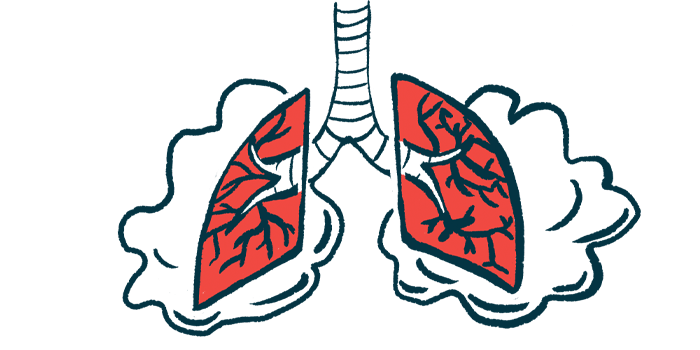Isturisa found to successfully treat ectopic Cushing’s in woman, 69
Report reveals rare case was due to hormone-producing tumor in lung
Written by |

Isturisa (osilodrostat) was found to successfully treat Cushing’s syndrome associated with a hormone-producing tumor in the lungs in a 69-year-old woman with lung cancer, according to a recent case study.
The woman simultaneously underwent cancer treatment with Tagrisso (osimertinib), which also was successful. The researchers noted that this case adds to the very few reports of Isturisa’s use for ectopic Cushing’s, or forms of the disease caused by tumors located outside the pituitary glands.
In fact, the use of Isturisa in this type of Cushing’s syndrome “has been previously reported in only 3 patients,” the team wrote.
The case study, “Cushing’s Syndrome in Adenocarcinoma of Lung Responding to Osilodrostat,” was published in the journal Case Reports in Oncology.
A rare case of a rare disease
Endogenous Cushing’s syndrome occurs when the body overproduces the hormone cortisol. Cortisol is made in the adrenal glands that sit above the kidneys; its release is stimulated by adrenocorticotropic hormone (ACTH), which is produced in the brain’s pituitary gland.
Tumors on the pituitary gland driving excess ACTH release are the most common culprits — a condition known as Cushing’s disease. Less frequently, Cushing’s is caused by ACTH-producing tumors found outside the pituitary gland, which is referred to as ectopic Cushing’s.
In this report, a Chicago-based research team described the case of an older Asian woman who was found to have Cushing’s syndrome associated with a type of tumor in the lungs that’s known as an adenocarcinoma.
At the time of her lung cancer diagnosis, the woman had no history of smoking, but did have rheumatoid arthritis and pulmonary fibrosis — a condition marked by lung scarring — which was attributed to a history of immunosuppressant use.
The tumor was found in her right upper lung. The patient was started on a course of chemotherapy, followed by surgery to remove the cancerous lobe of the lung, as well as some lymph nodes. She then received radiotherapy.
Nearly a year after treatment, a CT scan showed her cancer had returned. The tumor cells had a mutation in the gene encoding the epidermal growth factor receptor (EGFR). Mutations in this gene are linked to a better cancer prognosis, as they indicate that tumors are usually sensitive to a class of targeted treatments called tyrosine kinase inhibitors.
She was treated with one of these medications, called Tagrisso. Six months later, there were no signs of cancer progression, but the patient was exhibiting severe fatigue, swelling in the legs and face, unsteady gait, and high blood pressure.
Lab tests indicated low blood potassium and high blood sugar levels, both of which are linked to ectopic Cushing’s. Her ACTH and cortisol levels also were markedly elevated.
Additional tests indicated that Cushing’s was likely dependent on an ectopic source of ACTH. Imaging scans supported those findings, with no abnormalities found on the pituitary or adrenal glands.
The woman was started on Isturisa, which lowered her urinary cortisol levels from 2,835 micrograms per day (mcg/day) to 53 mcg/day after a month — a near normal level.
She also continued treatment with Tagrisso, which was switched to Tarceva (erlotinib) nine months later. No evidence of cancer progression was observed as of her last follow-up two months after starting Tarceva.
During treatment, the woman was diagnosed with pulmonary embolism — a blood clot in the lungs — which is a common complication of Cushing’s and lung cancer, according to researchers.
Her case is particularly interesting, the researchers noted, because the use of Isturisa hasn’t often been reported for ectopic Cushing’s. It does have a well-established ability to lower cortisol levels in those with Cushing’s disease for whom pituitary surgery is not effective or not an option.
This also is the first case report detailing the use of Isturisa in a non-small cell lung cancer patient, according to the researchers.
“For the very first time, we present a case of ectopic ACTH-dependent [Cushing’s syndrome] in a patient with EGFR-mutated adenocarcinoma of the lung,” the team wrote.
It can be difficult to diagnose ectopic Cushing’s because many of the symptoms are not specific to the disease. Researchers said the symptoms that helped them reach the diagnosis in this case were fatigue, and facial puffiness associated with low potassium and high blood pressure.






